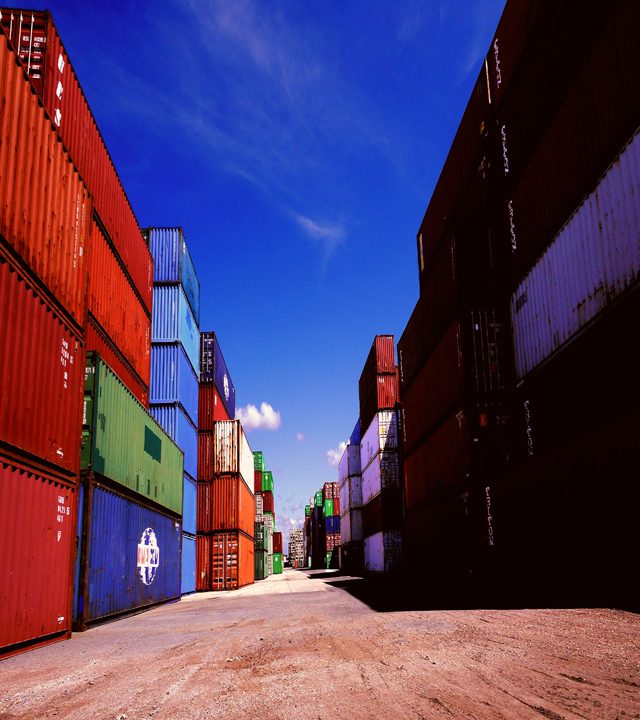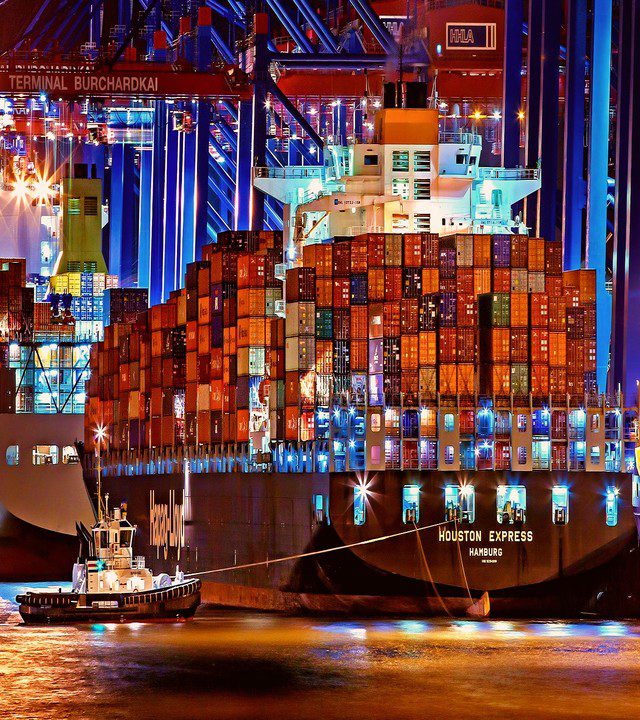Incoterms

Incoterms
What are Incoterms rules?
The Incoterms rules are the world’s essential terms of trade for the sale of goods. Whether you are filing a purchase order, packaging and labeling a shipment for freight transport, or preparing a certificate of origin at a port, the Incoterms rules are there to guide you. The Incoterms rules provide specific guidance to individuals participating in the import and export of global trade on a daily basis.
Why use Incoterms rules in international trade?
Although other clauses for global trade exist around the world, such as the Harmonised Tariff Schedule of the United States, Incoterms rules are global in their reach. Similarly, Incoterms rules do not include trade terms codified for national purposes, such as the “less than truckload shipping” (LTL) rule of the United States. Unlike national trade policies, Incoterms® rules are universal, providing clarity and predictability to business.


What does “Incoterms” stand for?
“Incoterms” is an acronym standing for international commercial terms. “Incoterms” is a trademark of International Chamber of Commerce, registered in several countries.
The Incoterms rules feature abbreviations for terms, like FOB (“Free on Board”), DAP (“Delivered at Place”) EXW (“Ex Works”), CIP (“Carriage and Insurance Paid To”), which all have very precise meanings for the sale of goods around the world.
These terms hold universal meaning for buyers and sellers around the world. If you are a financial analyst in the City of London, then you might associate the acronym “FCA” with the United Kingdom’s Financial Conduct Authority. However, for importers and exporters around the world, FCA are the initials used for “Free Carrier,” or the seller’s obligation to deliver the goods to the carrier nominated by the buyer at the seller’s premises or another named place.

RULES FOR ANY MODE OR MODES OF TRANSPORT
EXW – Ex Works
“Ex Works” means that the seller delivers when it places the goods at the disposal of the buyer at the seller’s premises or at another named place (i.e., works, factory, warehouse, etc.). The seller does not need to load the goods on any collecting vehicle, nor does it need to clear the goods for export, where such clearance is applicable.
FCA – Free Carrier
“Free Carrier” means that the seller delivers the goods to the carrier or another person nominated by the buyer at the seller’s premises or another named place. The parties are well advised to specify as clearly as possible the point within the named place of delivery, as the risk passes to the buyer at that point.
CPT – Carriage Paid to
“Carriage Paid To” means that the seller delivers the goods to the carrier or another person nominated by the seller at an agreed place (if any such place is agreed between parties) and that the seller must contract for and pay the costs of carriage necessary to bring the goods to the named place of destination.
CIP – Carriage and Insurance Paid to
“Carriage and Insurance Paid to” means that the seller delivers the goods to the carrier or another person nominated by the seller at an agreed place (if any such place is agreed between parties) and that the seller must contract for and pay the costs of carriage necessary to bring the goods to the named place of destination. The seller also contracts for insurance cover against the buyer’s risk of loss of or damage to the goods during the carriage. The buyer should note that under CIP the seller is required to obtain insurance only on minimum cover. Should the buyer wish to have more insurance protection, it will need either to agree as much expressly with the seller or to make its own extra insurance arrangements.
DAT – Delivered at Terminal
“Delivered at Terminal” means that the seller delivers when the goods, once unloaded from the arriving means of transport, are placed at the disposal of the buyer at a named terminal at the named port or place of destination. “Terminal” includes a place, whether covered or not, such as a quay, warehouse, container yard or road, rail or air cargo terminal. The seller bears all risks involved in bringing the goods to and unloading them at the terminal at the named port or place of destination.
DAP – Delivered at Place
“Delivered at Place” means that the seller delivers when the goods are placed at the disposal of the buyer on the arriving means of transport ready for unloading at the named place of destination. The seller bears all risks involved in bringing the goods to the named place.
DDP – Delivered Duty Paid
“Delivered Duty Paid” means that the seller delivers the goods when the goods are placed at the disposal of the buyer, cleared for import on the arriving means of transport ready for unloading at the named place of destination. The seller bears all the costs and risks involved in bringing the goods to the place of destination and has an obligation to clear the goods not only for export but also for import, to pay any duty for both export and import and to carry out all customs formalities.
RULES FOR SEA AND INLAND WATERWAY TRANSPORT
FAS – Free Alongside Ship
“Free Alongside Ship” means that the seller delivers when the goods are placed alongside the vessel (e.g., on a quay or a barge) nominated by the buyer at the named port of shipment. The risk of loss of or damage to the goods passes when the goods are alongside the ship, and the buyer bears all costs from that moment onwards.
FOB – Free On Board
“Free On Board” means that the seller delivers the goods on board the vessel nominated by the buyer at the named port of shipment or procures the goods already so delivered. The risk of loss of or damage to the goods passes when the goods are on board the vessel, and the buyer bears all costs from that moment onwards.
CFR – Cost and Freight
“Cost and Freight” means that the seller delivers the goods on board the vessel or procures the goods already so delivered. The risk of loss of or damage to the goods passes when the goods are on board the vessel. the seller must contract for and pay the costs and freight necessary to bring the goods to the named port of destination.
CIF – Cost
“Insurance and Freight “Cost, Insurance and Freight” means that the seller delivers the goods on board the vessel or procures the goods already so delivered. The risk of loss of or damage to the goods passes when the goods are on board the vessel. The seller must contract for and pay the costs and freight necessary to bring the goods to the named port of destination. The seller also contracts for insurance cover against the buyer’s risk of loss of or damage to the goods during the carriage. The buyer should note that under CIF the seller is required to obtain insurance only on minimum cover. Should the buyer wish to have more insurance protection, it will need either to agree as much expressly with the seller or to make its own extra insurance arrangements.
